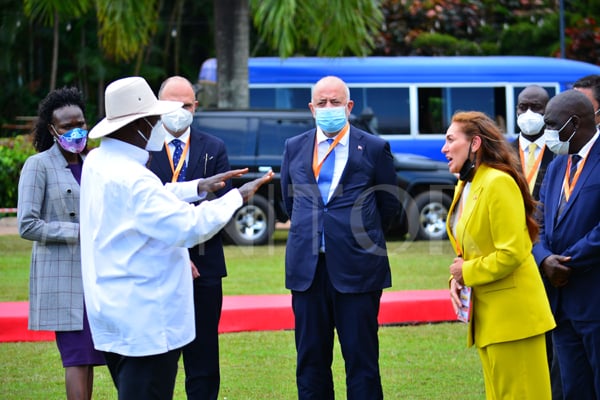Uganda, Turkey should embrace comparative advantage rule in trade

Pius Namaya
Uganda and Turkey hosted a joint Investment and Tourism Summit in Kampala from May 12 to 13, to explore trade, economic and investment opportunities between the two countries.
At the end, representatives on either side declared the summit themed, Accelerating Investment, Trade, Industry and Tourism between Uganda and Turkey in a Post-Covid Era, a “success”.
Three elements of this feat are discernible. Firstly, this high-level conferencing offered a platform to connect the two nations to bolster commercial diplomacy, expanding the frontiers for international trade. This arguably gives Uganda more global exposure and recognition.
Secondly, such engagements foster people-to-people cooperation, building trust that potentially can result in the deepening of cross-cultural understanding and exchanges.
Thirdly, preliminary deals closed at the summit help ramp up mutual interest, commerce and investment, spurring foreign exchange inflows and economic development. That is boundless opportunities for wealth creation and multiplication fuelled by technology, innovation and correct leadership.
The potential of a mutually-rewarding international trade between Uganda and Turkey is evident and immense. For instance, the volumes of trade between Kampala and Ankara increased over the past two years despite Covid-induced disruptions and, lately, Russia’s invasion of Ukraine.
In a 2020/2021 study, Uganda Investment Authority reported that exports to Turkey had increased by 418 percent and Turkish exports to Uganda grew by 26 percent.
Trade volumes rose between the two nations to $71 million in 2021, up from $63 million the previous year. This suggests prospects for even better opportunities if either side undertakes intentional reforms such as removing tax and non-tax barriers, and choosing enterprises of least production costs and most profits.
The two countries stand to gain most from trading with each other if the conduct of the trade is located within the theoretical framework of comparative advantage.
Here is why. Developed by classical economist David Ricardo in 1817, the law of comparative advantage proposes that for countries to benefit most from international trade, each should specialise in producing that it is most efficient at producing at the least cost possible.
A country should not seek to produce goods and services that others can make faster, better and at lower costs. Of course, this works on the assumption that countries will always have, or enjoy, goodwill among themselves to steady supplies, which is not always the case.
As shown by the global disruptions and accompanying western sanctions, the ability by a country to produce most things it needs at home is essential.
For instance, developing nations that could not develop Covid vaccines found themselves at a great disadvantage and criticised developed nations for hoarding vaccines.
These hamstrings signal challenges in the application of the principle of comparative advantage in international trade, yes, but do not in themselves remove its validity yet they blind-spot the larger opportunities the principle offers.
If there are two countries capable of producing the same commodity, in the context of a free market, and for the best economic gains, they should incur the least labour, infrastructure, innovation and market access costs.
To return to the Uganda-Turkey Summit in Kampala, this means that Uganda, owing to its favourable climate and natural endowment, should specialise in mainly agriculture alongside minerals extraction and tourism marketing. Turkey is better placed to specialise in education, infrastructure development, medicine and advanced technology --- areas in which it has a better comparative advantage over Uganda.
Therefore, the proposals at the summit such as Uganda-Turkey Industrial Park and Trade Centre are seminal steps in the right direction to promote sustained opportunities in the various priority sectors. With 85 million people, a GDP of $720b and its central location between Asia and Europe, the Turkish market is a windfall for Uganda and vice versa.
Pius Namanya is a student of Master of Arts in Economic Policy and Planning at Makerere University.




